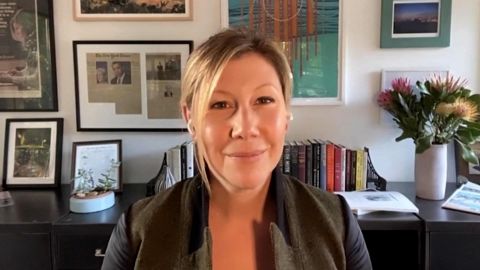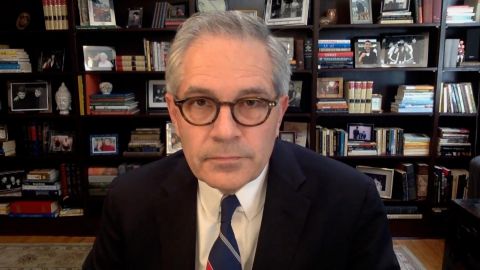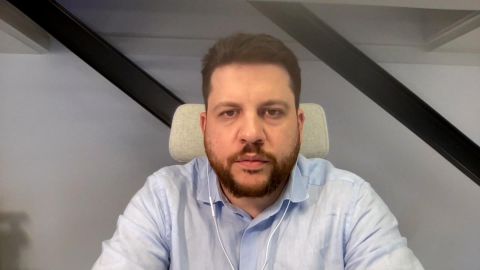Read Transcript EXPAND
CHRISTIANE AMANPOUR: How does one balance these sanctions? I mean, probably, people listening, their eyes may be glazing over. I don’t know. But we have been talking about sanctions against Russia for years and years and years now. And it — to us, to a layperson, it doesn’t seem to have changed their behavior. In addition, the president has held out the notion of a summit, President Biden, with President Putin. And Putin seems to want to do that in a third country. Plus, Putin will address the climate summit that the president has called. That’s going to be tomorrow. So, how do you balance these things to cause pain on the one hand and teach a lesson the one hand, but then, it seems, to keep him in the community of nations and work with him on the other hand?
CELESTE WALLANDER: So, on the impact of sanctions, I think that I would share the view that the sanctions of the last couple of years have been significantly ineffective. They are confusing. They’re targeting the wrong targets. They’re targeting individuals in Russia that, frankly, the Kremlin doesn’t care all that much about. But the sanctions that were imposed in 2014 did have a deterrent effect in the summer of 2014, after Russia was escalating the fighting. There were indications of much more significant escalations to come. And after the tragic shoot-down of MH17, Europe in the United States cooperated in imposing very significant sanctions not against individuals here and there, but against sectors of the Russian economy. And we saw a step-back, a pullback in the summer and fall of Russian military operations in Ukraine. So it’s hard to prove that deterrent threats have an effect, because what you’re getting is not behavior. That’s the nature of deterrence. But I think that well-designed sanctions and well-designed deterrent instruments of many kinds can have that effect. It’s just hard to see it, because it’s more — it’s the dog that doesn’t bark as a result.
AMANPOUR: Also, it creates the question — sorry. Go ahead. Well, no, I was just going to say, it begs the question, what is the U.S.’ ultimate goal? Is it to see Russia collapse? Just this week — and Putin-ism collapse. Just this week, the former head of MI6 here, John Sawers, basically said that is not the Western goal. You don’t want to see the Balkanization or the complete collapse of a country as big and as important and as brimming with nuclear weapons and other weapons of mass destruction just collapse. So, is Russia brittle? What is the state of affairs?
WALLANDER: So, I would agree that I think the goal of U.S. foreign policy, bipartisan goal of U.S. foreign policy, is not to cause the collapse of Russia. And, in fact, U.S. policy for the past 30 years focused on trying to integrate Russia into the international economy, to support democracy, to support business, to seek out that kind of excellent, successful and prosperous Russia. The problem is, the Kremlin doesn’t want that.
About This Episode EXPAND
Leonid Volkov; Celeste Wallander; Larry Krasner; Nicole Perlroth
LEARN MORE



